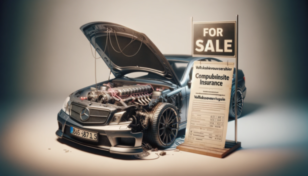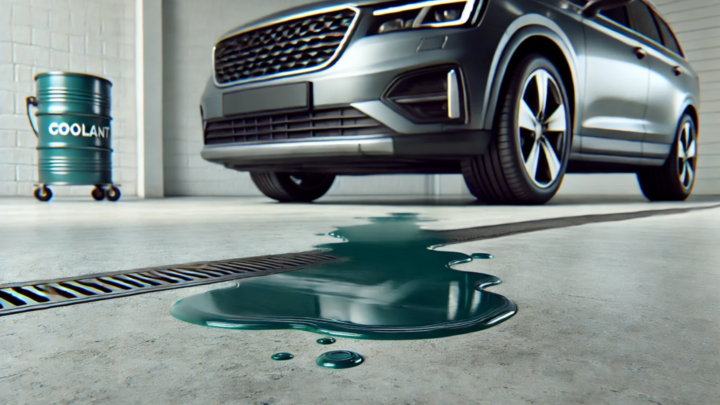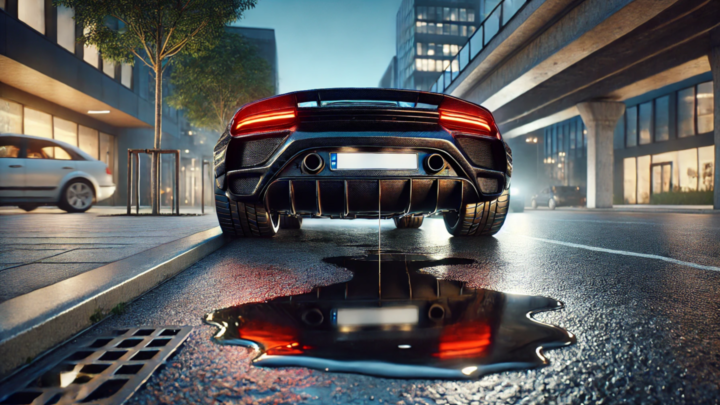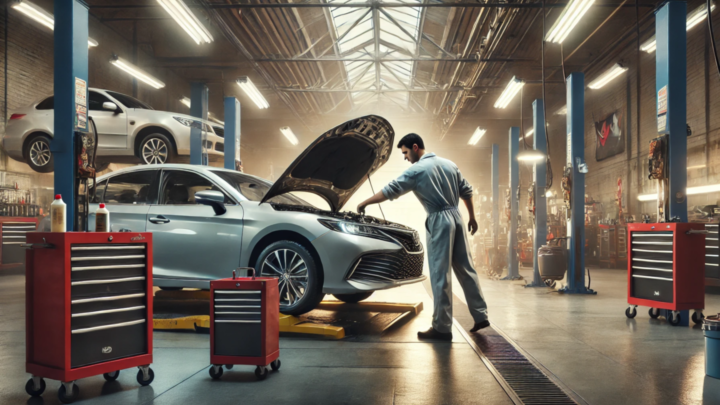Engine damage and comprehensive insurance:
Everything you need to know
Engine damage and comprehensive insurance: What to do when your engine fails with full coverage
Engine damage can quickly become a costly situation, putting financial strain on any driver. However, if you’ve secured comprehensive insurance, you can breathe a little easier knowing you have some protection. In this blog post, we’ll explore what types of engine damage are covered by comprehensive insurance, how to proceed after a breakdown, and what important factors to keep in mind.
What does comprehensive insurance cover for engine damage?
Comprehensive insurance is the most extensive form of vehicle insurance, covering damages to your vehicle as well as other vehicles you may damage in an accident. When it comes to engine damage, it’s crucial to understand that comprehensive insurance generally covers damage caused by accidents or collisions. Damage due to wear and tear, however, is typically not included.
Typical coverage in comprehensive insurance:
- Engine damage from an accident: If your vehicle’s engine is damaged in a collision, comprehensive insurance will cover repair or replacement costs.
- Partial coverage benefits: Some aspects of partial coverage apply to damages not caused by accidents, such as theft, vandalism, or natural disasters. In combination with comprehensive coverage, you’re fully protected.
💡 Good to know: Damage caused by wear and tear or poor maintenance is often not covered by comprehensive insurance. Always review your policy carefully!
What costs can you expect even with comprehensive insurance?
Even with comprehensive coverage, you may still be responsible for some costs, including:
- Deductible: Before your insurance covers any repairs, you’ll generally need to pay a deductible. The amount of the deductible depends on your specific insurance policy.
- Higher premiums: Reporting engine damage to your insurance could result in higher premiums, as you’ll be viewed as a higher risk to the insurance company.
How does engine damage impact your insurance premiums?
It’s important to note that filing an engine damage claim with your insurance can have long-term effects on your insurance premiums. Often, reporting such damages results in increased monthly premiums since insurance companies see you as a higher-risk customer. As such, it’s essential to weigh your options carefully when deciding whether to file a claim or seek other solutions.
Common causes of engine damage
Engine damage can occur for a variety of reasons. Here are some of the most common causes:
- Wear and tear: Over time, engine components naturally wear out, leading to potential failure.
- Poor maintenance: Failing to regularly maintain your vehicle significantly increases the likelihood of engine damage.
- Accidents: Collisions and crashes can result in severe engine damage, requiring costly repairs.
- Overheating: An overheating engine can lead to major damage, especially if the cooling system is compromised.
- Driver error: Incorrect vehicle handling or aggressive driving habits can also result in engine damage.

What to do if you have engine damage and comprehensive insurance
An engine breakdown can be stressful, but with comprehensive coverage, you can navigate the situation more easily by following these steps:
- Contact your insurer: Immediately report the damage to your insurance provider and follow their guidance on the next steps.
- Documentation: Gather all relevant information and photos of the damage. Keep any repair invoices or estimates on hand.
- Assessment and repair: Your insurer will likely send an assessor to evaluate the damage. Ensure that any repairs are performed by a repair shop approved by your insurer.
- Pay attention to your deductible: Make sure you understand the deductible you’ll need to pay before your insurance covers the rest of the repair or replacement costs.
- Consider total loss: If the engine damage is extensive and the cost of repair exceeds the vehicle’s value, your insurer may declare the car a total loss. In this case, you’ll be paid the current market value of your car minus your deductible.
What happens if repair costs exceed your vehicle’s value?
Especially with older vehicles, repair costs may sometimes exceed the car’s current value, resulting in what’s known as a total loss. In this case, your comprehensive insurance will generally pay out the market value of the vehicle, minus your deductible.
💡 Good to know: In cases of total loss, it may be more practical to sell the damaged vehicle rather than invest in costly repairs. Platforms like CashforCars.de offer a quick and easy way to sell your damaged car for a fair price.
Conclusion: Engine damage and comprehensive insurance – How to minimize financial strain
An engine failure can result in hefty expenses, but with comprehensive insurance, you’re financially safeguarded. It’s important to report the damage promptly, document all necessary information, and keep track of your deductible. You should also consider the potential impact on your insurance premiums. If repairs aren’t cost-effective, selling your vehicle through a platform like CashforCars.de could be your best option.
Interested? Visit CashforCars.de to learn how you can sell your damaged car easily and hassle-free. Contact us by phone at +49 (211) 7306 1701, send us a WhatsApp message, or fill out our online form to receive an offer right away. This will save you expensive repairs and allow you to receive financial support.






